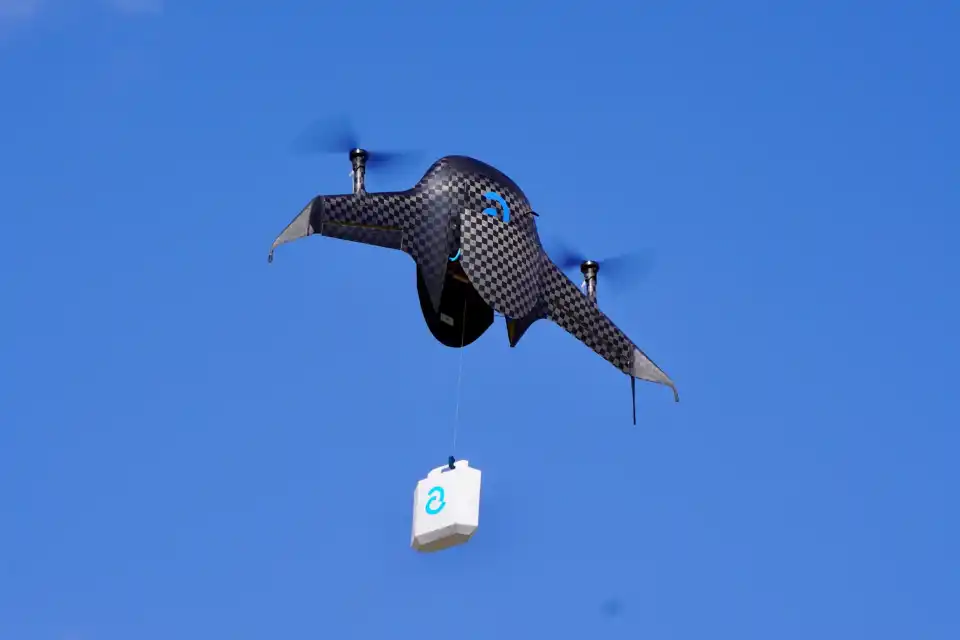Airbound, an Indian drone startup, has raised $8.65 million in seed funding, led by Lachy Groom, co-founder of Physical Intelligence. Other participants include Humba Ventures, existing investor Lightspeed Venture Partners, and senior leaders from Tesla, SpaceX, and Anduril.

The funding comes as Airbound begins a drone delivery pilot with a private hospital and works toward its ambitious goal of one-cent deliveries using its ultra-light, blended-wing-body aircraft.
Innovative Aircraft Design
Founded in 2020 by Naman Pushp, who was 15 at the time, Airbound has developed a tail-sitter drone with a carbon-fiber frame and a blended-wing-body design. Unlike traditional quadcopters, this drone launches vertically like a rocket and flies like a plane, improving energy efficiency and reducing operating costs.
The aircraft, named TRT, carries small payloads while weighing far less than conventional delivery vehicles. By removing the need for a human driver, Airbound reduces transport weight by roughly 30 times, cutting energy costs per kilometer by up to 20-fold.
Pushp said, “There is a huge gap between where drones are today and where they can be. Most drones need four kilograms to lift one kilogram of payload, which is inefficient. Aerodynamic efficiency is largely ignored in current systems.”
Cutting Delivery Costs
Airbound’s drone uses lithium-ion batteries instead of lithium-polymer packs, increasing lifespan and lowering replacement costs. Currently, each drone costs about $2,000 to make, and per-delivery energy costs are around ₹24 ($0.27). The startup aims to bring that down to below ₹5 ($0.05) by 2026.
The first version carries up to 2.2 pounds of payload and weighs 3.3 pounds, while the second version will support 6.6 pounds at just 2.6 pounds of drone weight. Production is expected to scale to over 100 drones per day from the current one drone per day at its Bengaluru facility.
Pilot Program and Market Plans
Airbound has launched its first pilot with Narayana Health in Bengaluru, delivering medical tests, blood samples, and critical supplies. The goal is 10 deliveries per day over three months.
Beyond healthcare, the startup targets quick commerce, food deliveries, and other last-mile services. Once it reaches one million deliveries per day, Airbound plans to expand internationally, including the U.S. market within three years.
Early Journey and Funding History
Pushp began Airbound during the COVID-19 lockdown after being inspired by a Zipline video. Early prototypes were crafted from toothpicks, tape, and 2D slices, later refined into carbon-fiber aircraft.
Before turning 18, Pushp received a term sheet from Lightspeed. Since then, Airbound has raised over $10 million, including grants from the 1517 Fund, gradCapital, and Emergent Ventures.
Efficiency and Future Outlook
By leveraging its blended-wing design, Airbound eliminates extra propellers, reduces drag, and significantly improves lift-to-drag ratio, making forward flight highly energy-efficient. Pushp emphasized, “Logistics is a physics problem. Lower weight and higher efficiency are key to winning.”The latest funding will help scale manufacturing, expand operations, and refine the pilot program, setting the stage for broader adoption in 2026. Airbound currently employs 50 people and continues discussions with India’s Directorate General of Civil Aviation to begin flights soon.
